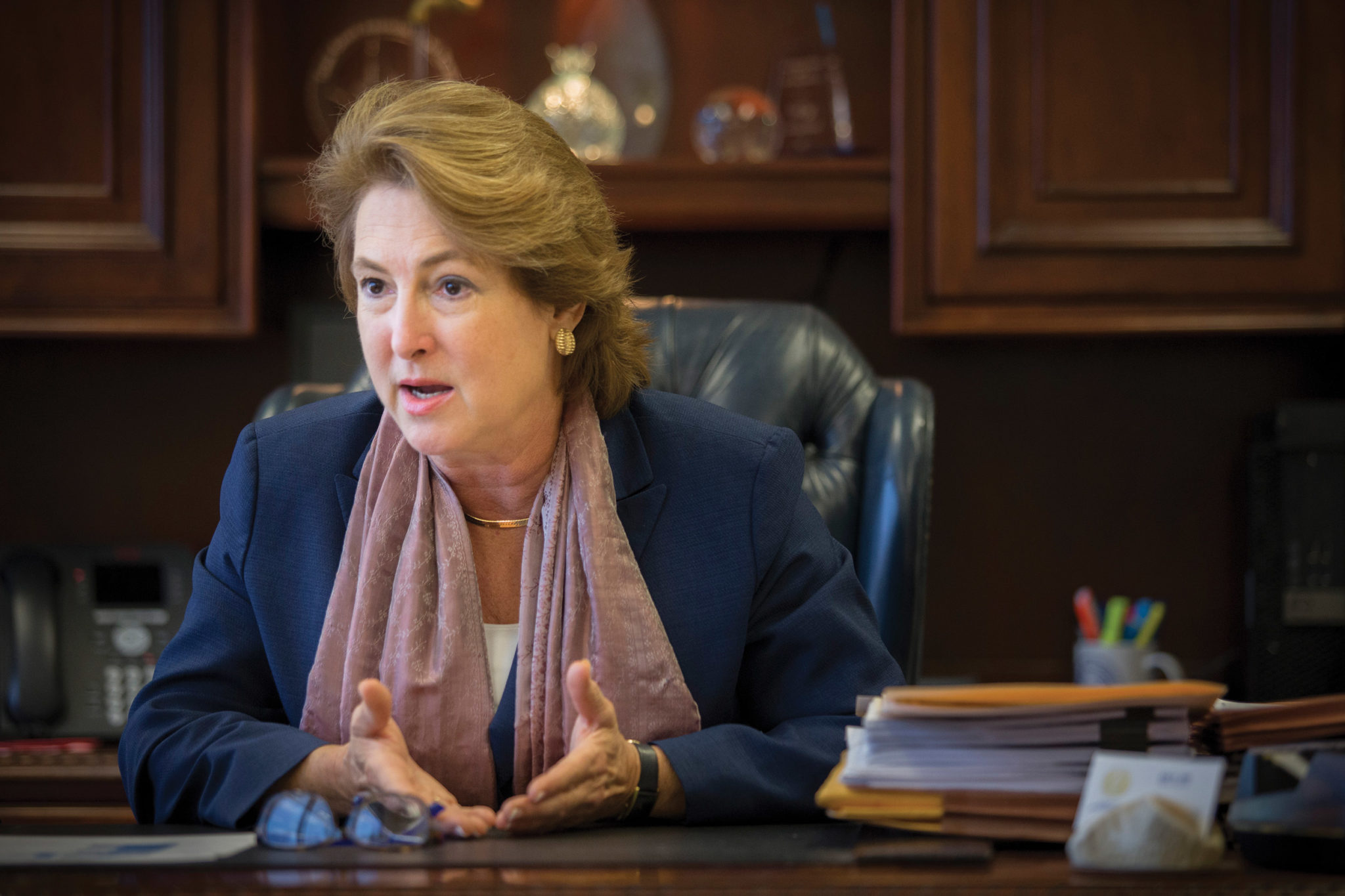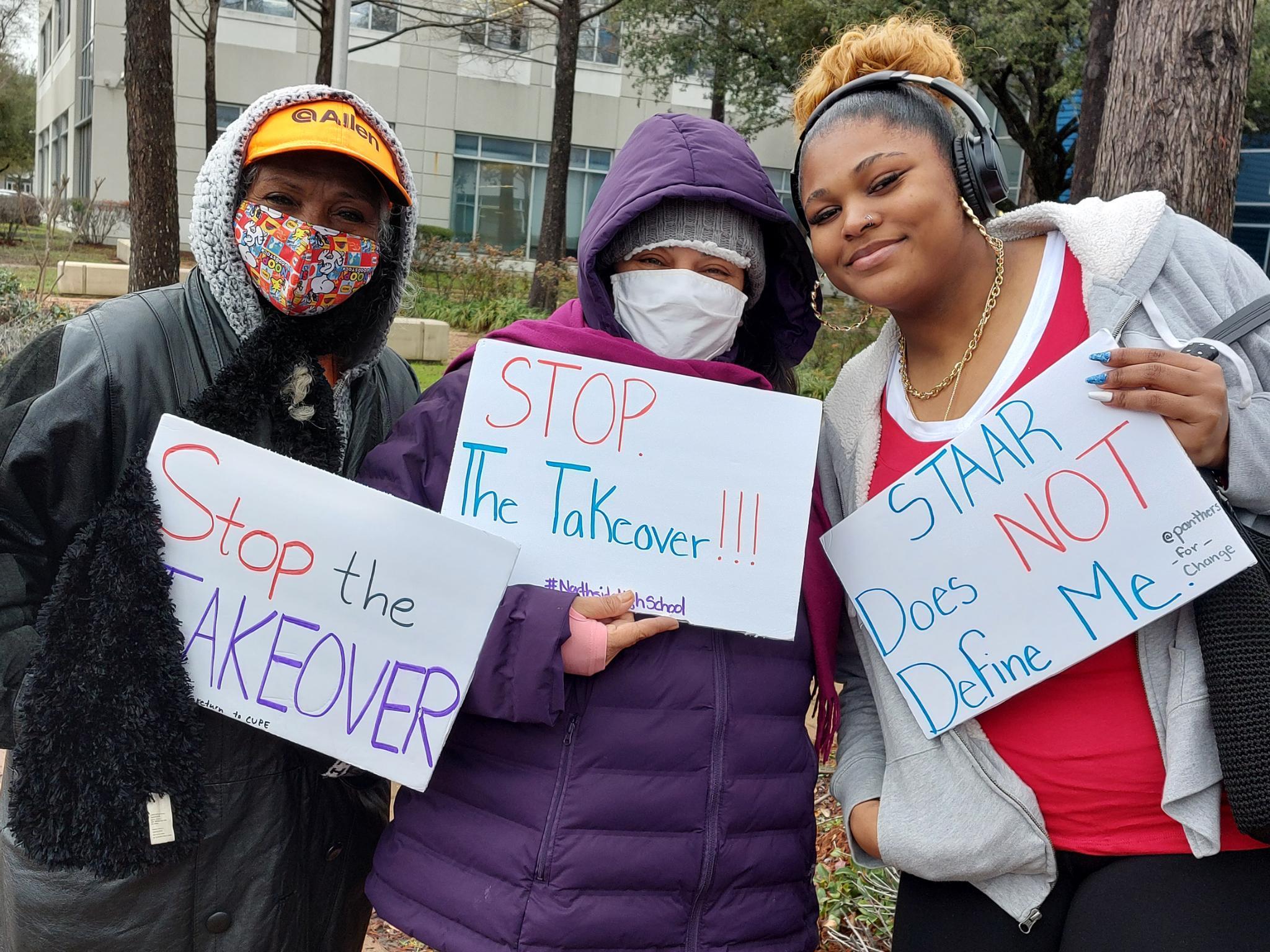
The Interview: Harris County District Attorney Kim Ogg
For the first time in nearly four decades, Harris County’s district attorney is a Democrat, and she has high aspirations.

A version of this story ran in the June 2017 issue.
Upon taking office in January, Harris County District Attorney Kim Ogg cleaned house, replacing dozens of prosecutors hired by her predecessor. Ogg made good on her campaign promise to decriminalize marijuana — a change that was once unthinkable in Texas’ conviction capital. Prominent Republicans have been just as quick to attack Ogg for being too lenient on “dope smokers.” Perhaps still gliding on the high of a strong win, Ogg says that Texas is ripe for change and that the Harris County DA’s office could be the catalyst.
Q: Officials in Texas have been gradually moving away from traditional tough-on-crime policy positions. Do you consider yourself tough on crime or smart on crime?
Ogg: I consider myself smart on crime, and I am part of the national reform movement. I ran the first gang task force in the state, and I ran a nonprofit called Crime Stoppers. It was while I was at Crime Stoppers that I started seeing how much differently we could do things. And so since that time, I have wanted to run for district attorney.
You decriminalized the possession of small amounts of marijuana. Jeff Sessions has signaled that he seeks to ramp up the war on drugs. What power does the federal government hold over your policy decisions?
I enjoy total discretion under Texas law as to who I charge and with what crime. The federal government has never been able or even really wanted to influence local prosecutors in terms of individual charging decisions. I don’t fear Sessions’ interference, although I think that states — certainly states where marijuana is legal — may face states’ rights battles with the federal government.
What pushback have you faced in Texas?
The lieutenant governor accused me of creating a sanctuary city. I think he’s looking to pick a fight with Houston. It seemed like a partisan attack more than a substantive one. He said Houston would become a drug-user sanctuary, and then I heard the same language being used by [DA] Brett Ligon of Montgomery County. They have the same political consultant, Allen Blakemore. I think it was posturing simply because I did something that was popular and pragmatic. The program will save about $27 million a year — either save it or redirect it. I think this presents a clear and present threat to the Republican power structure, the fact that local Democratic government in Harris County is moving forward on this reform agenda that has bipartisan support. They’ve got an eye toward the 2018 election cycle.
Will this attack have any impact on Harris County? Or is this all just noise and politics?
Anything is possible, but the evidence will speak for itself. In the first six weeks of the program we’ve diverted 576 people [from jail], and the savings is over $1.5 million. The program will rise and fall based on whether we’re continuing to save lives and money. Of those 576 people that have been diverted so far, I know that none of them have lost their job because of an arrest for a misdemeanor amount of marijuana. I know that none of them have been turned away from a housing opportunity because of the marijuana conviction. So far, so good on both the human and the fiscal front.
The governor recently announced that he will be awarding $500,000 in state funding to your office, specifically for the Texas anti-gang task force. What’s the plan for that money?
The governor’s office didn’t notify us about that grant.
No?
Nope, nobody in Harris County. Not the police chief. Not the sheriff. Not the district attorney. But we’re glad to take their money on anti-gang efforts and thrilled that they want to invest in this area.
As anti-immigrant rhetoric becomes increasingly prevalent, how do you make sure that a person you’re prosecuting is being judged for the crime and not for his or her immigration status?
Under the last administration, if an undocumented person was charged with a crime, the bail was automatically plus $35,000. So they made it very difficult for an undocumented person to bond out even on a misdemeanor. We eliminated that. Bail reform has been a big issue for me.
Do you believe in the death penalty?
Before I came to the district attorney’s office in 1987, I had been opposed to the death penalty. I agreed to prosecute it, but it was four years before I tried my first death penalty case, and during that four-year period, I underwent a personal change of belief. We were in the middle of a huge crime wave. It was the late ’80s, early ’90s, people were being butchered here by the hundreds. Our murder rate was over 700 a year. And I felt that the playing field just wasn’t level for crime victims and that we needed to take dramatic action. I know that sounds ironic, but that’s how I felt. After I left the DA’s office, I was a defense lawyer for 10 years. I had a lot of clients, and I really saw the pain and suffering that their families went through. … I’ve come to see many changes in the law during my career, the most important of which related to the death penalty is the life-without-parole statute. Now that’s an option, and it wasn’t when I was a prosecutor the first time around. In fact, the average length of time that somebody was serving for murder back in 1991 was three years. We knew that people were going to get out. Now there’s an option to keep somebody in for their natural life. I personally don’t see [the death penalty] as a deterrent. It’s just pure retribution. I’m a human being, and my views have changed before. It’s possible they could change again. But while I ran, I left the death penalty on the table. I said I believed in it at the time. I still do.
Given that people of color are overrepresented in the criminal justice system, how important is diversity in the DA’s office?
It’s no secret that when I came in, I let leadership in this office go, and I replaced it with a far more diverse group of experienced and talented lawyers. I also am trying to diversify our lower ranks because we need prosecutors who the public can relate to. If they’re all Caucasian, and they’re all straight out of law school, they’re just not going to have the life experience that I think is important when you have people’s lives in your hands, like we do.
The state’s largest county — with the most death penalty convictions and the largest criminal justice infrastructure — just elected a self-proclaimed reformer as its DA. What does that mean for Harris County and for Texas?
Well, Harris County voters pushed the refresh button because they wanted a significant change. They were tired of prosecutorial misconduct, of a district attorney who believed that jailing rape victims was fine. If we exhibit good, solid governance over the next four years, we will prove that Democrats in leadership positions provide superior service. I think that represents a threat to the Republican stranglehold on Texas. If we’re successful in reducing the crime rate and making a safer Harris County, it’ll be hard for other urban areas to resist making similar changes.
So change in Texas’ political structure starts in the Harris County DA’s office?
It could. We carried the ticket, with the most votes in Harris County. That’s unprecedented for a district attorney. My race was at the bottom of the longest ballot in Texas, and yet I got the most votes in Harris County. I received 108,000 more votes than my opponent. And I think that was a strong statement. I think a lot of people around the country are looking at Harris County — especially in light of the last national election — as a blue light in a red sea.
This interview has been edited for length and clarity.


